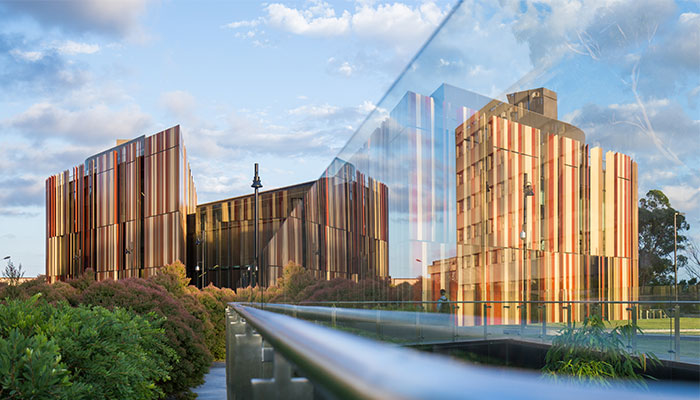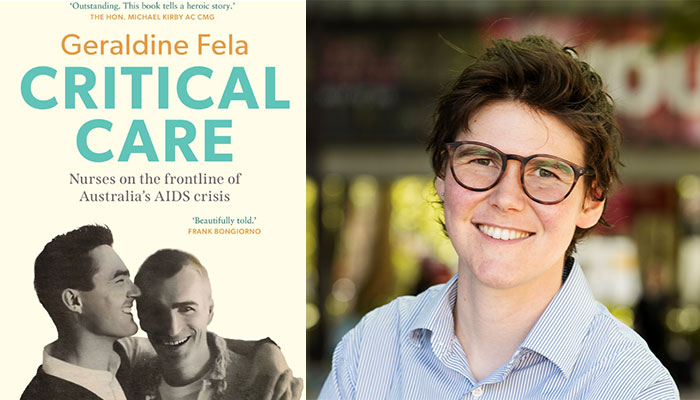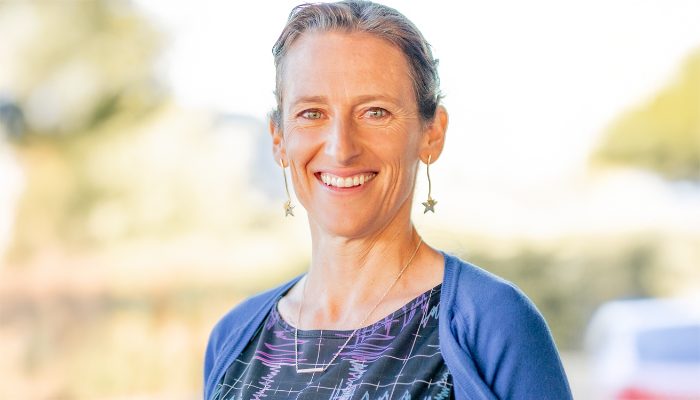Part of a successful refinance of $450 million of bank facilities, the milestone transaction makes Macquarie one of the first universities in Australia to establish an SLL. It is also the second organisation in the country to include biodiversity among its SLL targets.
The move is an extension of Macquarie University’s existing sustainability credentials*, which have been the subject of global recognition.
Just last month, the University placed first in the world for Life Below Water and fourth for Clean Water and Sanitation in the 2023 Times Higher Education (THE) Impact Rankings. The rankings, which assess the performance of universities against the United Nations’ Sustainability Development Goals (SDGs), also placed the University 39th in the world overall.
The SLL builds on these achievements.
Sustainability-Linked Loans incentivise sustainability performance by tying financing costs to performance against pre-agreed social and environmental Key Performance Indicators (KPIs). Macquarie University’s SLL includes six KPIs, which address scope 1 and scope 2 emissions, scope 3 emissions, biodiversity, staff and student education on indigenous cultural safety and the United Nations’ SDGs, gender equality, and widening participation in STEM (science, technology, engineering and mathematics) for underrepresented groups.
The loan also includes a unique commitment by the University to reinvest all margin adjustments into supporting scholarships for disadvantaged students.
Vice-Chancellor, Professor S Bruce Dowton, says the SLL is an important addition to Macquarie University’s efforts to make meaningful inroads on the issue of sustainability.
“To have six KPIs in one transaction is a significant achievement and reflects the diversity and sophistication of the University’s commitment to the United Nations’ Sustainable Development Goals,” he says. “The ambitious targets reinforce our work to advance sustainability across our operations, research, curriculum and environment.”
Upon reaching its SLL targets, the University could generate more than $500,000 in savings over the life of the loan, and every cent will be directed to disadvantaged students through scholarships and bursaries.
Advisory firm Grant Samuel was engaged as financial and sustainability advisors for the refinancing. Grant Samuel co-CEO Guy Fergusson said, “The Macquarie University SLL is pioneering for the Australian university sector, setting genuinely ambitious sustainability targets that will deliver real societal impact if delivered.
“Whilst it is an ambitious sustainability program, it was pleasing to see the whole University come together to design and support the program and to ultimately receive the support and endorsement of the University Council.”
Macquarie University’s SLL was facilitated by Commonwealth Bank (CBA), ANZ, HSBC, and Bank of China.
Deborah Leerhsen, Executive General Manager Global Client Solutions at CBA, commended the University’s continued commitment to driving better social and environmental outcomes.
“Commonwealth Bank is proud to support Macquarie University not only with its first Sustainability-Linked Loan, but also with the commitment to reinvest any savings in scholarships for disadvantaged students. This innovative application of sustainable finance to better serve the communities in which we operate resonates with CBA’s purpose, to build a brighter future for all,” she said.
“Macquarie University is leading the way. The broadness of the scope of the KPIs, which include emissions, social and biodiversity targets, and the materiality of these goals to the University’s operations show how SLLs can support issuers to achieve their ambitions. Importantly, Macquarie continues to aim higher – demonstrating to the market that a mature sustainability program supports successful execution on strategy,” Leerhsen added.
The University’s biodiversity target, only the second of its kind in Australia, is primarily focused on the continued restoration of the critically endangered Turpentine-Ironbark Forest located on campus.
There are 3.5 hectares of Turpentine-Ironbark Forest on the Macquarie University campus, and it is hoped the restoration will provide habitat to native bird species, including the powerful owl and the superb fairy wren.
Macquarie University’s Vice-President, Finance and Resources, Robin Payne, who is also the executive officer responsible for sustainability, explains why the University has looked beyond carbon.
“Carbon is a given,” he says. “Everyone includes carbon targets, and we have too, but because we have already achieved a 90 per cent reduction of scope 1 and 2 emissions since 2019, we thought it was important to expand the impact of this SLL.
“We wanted to challenge the parameters, to look at this opportunity differently, and hopefully to encourage other organisations to look at their environment and how they can be innovative.”
Another target of the SLL focuses on the University’s popular Junior Science Academy (JSA) and expanding enrolment capacity for underrepresented groups. The JSA, which provides primary school-aged children with the opportunity to explore the world of science, already features a Deaf and Hard of Hearing program, established in collaboration with the Australian Hearing Hub.
Under the SLL commitment, this program will be expanded, while a Blind and Visually Impaired program will be created. Plans also include an increase in girls’ JSA enrolments – an effort to encourage women in STEM.
Peter Boyle, Chief Executive Officer of U@MQ, the University’s student experience arm, says: “Whoever you are, there is a place for you at Macquarie University. That is our ethos, and to honour that commitment, we must continually strive for equity across all our programs.
“The Australian Hearing Hub, founded by Macquarie University, brings together leading organisations including, Cochlear, NextSense, Hearing Australia, National Acoustics laboratories and The Shepherd Centre. We want to expand on our success supporting the deaf and hard of hearing population and these targets will enable further expansion of this focus.”
Pivotal partnerships continue to emerge in support of the University’s evolving sustainability strategy.
* Sustainability at Macquarie University: The journey so far
Macquarie University’s sustainability journey is long-established and continues to evolve. These are just some of the key milestones achieved in recent years.
- Macquarie University achieved its best Times Higher Education (THE) Impact Rankings result in 2023, placing 39th globally, including first in the world for SDG14, Life Below Water. This acknowledgement was aided by projects such as:
- Living Seawalls is reviving our increasingly urbanised oceans through the development of ecologically enhancing structures. While the project started in Sydney Harbour, its installations now span three continents.
- Through the Mars Creek restoration project, the once-neglected channel – two-thirds of which run through the Macquarie University campus – has been brought to life thanks to a thoughtful redesign, including the introduction of thousands of native plants, which have encouraged rich pool and edge habitats.
- The University is researching and distributing policy-relevant science that is critical in helping to prioritise marine areas for biodiversity conservation and marine spatial planning in the Western Indian Ocean Region (WIO).
- Macquarie University has held a Workplace Gender Equality Agency (WGEA) Employer of Choice for Gender Equality citation since 2019.
- Macquarie University’s award-winning sustainability bonds, established in 2018, have led to a significant reduction across campus greenhouse gas emissions, potable water consumption and landfill.
- Campus electricity has been supplied by renewable electricity through a Power Purchase Agreement (PPA) with Red Energy, backed by Snowy Hydro since July 2020. Through the seven-year deal, the University will purchase approximately 54,422 MWh of renewable electricity per annum, saving the equivalent of 8500 households’ worth of emissions each year.
- To support the transition to electric vehicles for staff, students and locals, the University installed three dual electric vehicle (EV) chargers on campus in 2021, which allows six vehicles to charge simultaneously.
- The University launched 10 new research centres in May 2023. These included the Smart Green Cities, Lifespan Health and Wellbeing, Transforming Energy Markets, and Ethics and Agency research centres, all of which seek to address the complex challenges of our changing environment.



